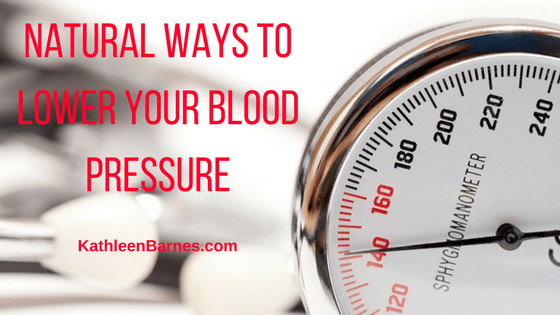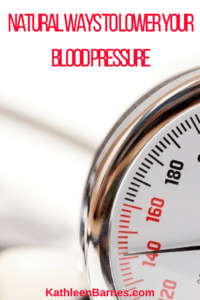This article was originally published on this website in 2014. Updated for 2018.
One in three of us—58 million Americans – has high blood pressure. In fact, say experts, there’s a 90% chance you’ll develop hypertension in your lifetime.
The good news: Dropping a few pounds and exercising are tried-and-true ways to prevent and even reverse high blood pressure. Better yet, the latest research suggests there are other amazingly easy all-natural ways to do this, including:
Head off the “hurry up” sickness
New research from Northwestern University shows that many high energy, get up and go people with Type A personalities have a component called Time Urgency/Impatience or TUI. Women are particularly prone to TUI—think about having to work late, getting stuck in traffic while you’re rushing to pick up your kids at day care on time. That’s TUI! People with TUI have an 84% higher risk of developing high blood pressure!
Emotional stress doesn’t happen in the mind alone, the pressure comes out in your body, putting stress on your heart and raising blood pressure. The answer? De-stress and do it often. The best methods? When you’re stuck in traffic take a few deep breaths and consciously relax your grip on the steering wheel. Anytime: Re-live a fun event in your mind. Mediation is among the best study-proven de-stressors and stress preventer. Try it for 10 or 15 minutes every morning and again later in the day if you’re feeling stressed out.
Try the bedtime cure
Research links hypertension with body clock disturbances. A Dutch study found that a 2.5 mg dose of melatonin dropped the systolic (top number) blood pressure of people with high blood pressure by 6 points and the diastolic (bottom number) by four points in just three weeks. Melatonin doesn’t work like prescription drugs that lower blood pressure. It modifies the function of the body clock, which is intimately connected to the cardiovascular system, although we’re not sure exactly how. Bonus: Melatonin will also help you sleep more soundly, adding to its blood pressure lowering benefits.
Pop vitamin C
Several studies extol the powers of vitamin C to lower your odds of heart disease by as much as 60%. Now researchers at the Linus Pauling Institute in Corvallis, Oregon have discovered that giving people with hypertension just 500 mg of vitamin C daily can lower blood pressure by up to 9%. That’s almost the same effect as expensive prescription drugs. One reason: Vitamin C protects the endothelium or lining of the arteries from oxidative damage, promoting better blood flow. In addition, plaque in arteries narrow the blood vessels, increasing blood pressure and setting off a chain of events directed by the kidneys, which send hormonal messages that increase blood pressure even more. Of course, you want the whole food Vitamin C, not ascorbic.
Ask about pycnogenol
German research shows that people with hypertension who took 100 mg of this antioxidant supplement daily were able to cut their daily dose of blood pressure medication by 30%. Pycnogenol is very important in microcirculation, regulating the blood flow in small blood vessels and capillaries, which protects you against the type of high blood pressure that can cause strokes. Researchers suggested that pycnogenol, made from the bark of French pine trees may help people lower their cost of treating high blood pressure and minimize side effects like palpitations, constipation, headache and dizziness.
While all these supplements are safe at the recommended dosages, as always, check with your physician before taking them.








